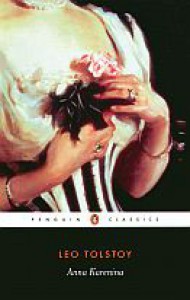Anna Karenina by Leo Tolstoy

I did not find Anna Karenina easy to read. The novel spanned over 1000 pages (read: far too long), and covered such a wide variety of topics – eg. politics and rural farming – that, at times, I was heartily bored, and at other times I wondered why I was reading a story that I knew was going to end with a train wreck.
But it did not, not really. Despite its title, this story was not entirely Anna Karenina’s story. Neither was it a love story. It was a story of fate and circumstances – a story of two couples told parallel to each other; one that ended rather badly, and the other that ended well – and neither really deserved or earned their respective fates. This story was more about circumstances that resulted in the characters’ choices, than the choices themselves. There was so, so much realism in it – love alone wasn’t enough to make one happy. Anna found her love, but she also found the price that came with it far higher than she could pay.
Some people said that the romance between Anna Karenina and Count Vronsky was a timeless tale of love, because their story could happen today and still end the same way. I suppose it’s quite possible, despite the different morality of today’s society, because it was fate and circumstances that played a bigger part than characterization in driving Anna’s downwards spiral towards her untimely end. Circumstances that could quite likely exist just as well in today’s world – two high profile figures being shunned by the public for committing scandalous adultery, insecurity of the fidelity of one’s lover, etc.
Levin & Kitty’s story served as a contrast. Theirs was also a love born of chance and circumstances, because if the circumstances had been different Levin could have married any of the 3 sisters – Dolly, Anna or Kitty – if he had met a different sister first, or if it had been another sister who remained unwed, etc. His was a character who just went along with the flow, so to speak, and he married Kitty in the end because circumstances gave him the opportunity to propose to her again (she rejected him the first time he proposed. For Vronsky, before he met Anna and promptly fell in love with her and forgot all about Kitty. Classic Romeo guy.)
I can now say I’ve read this book in its entirety and am not in love with it. Perhaps because of my predilection for stories in which one’s choices made all the difference, rather than circumstances - I prefer my characters to fight for each other (and win).


